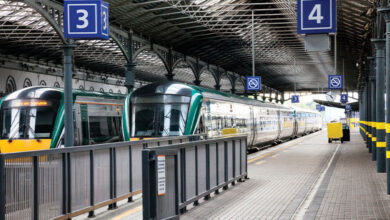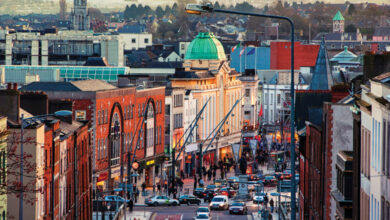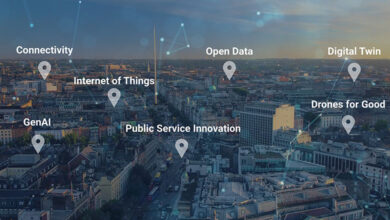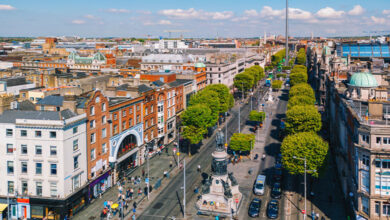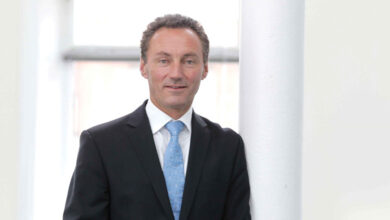Electrification for tomorrow’s net zero cities
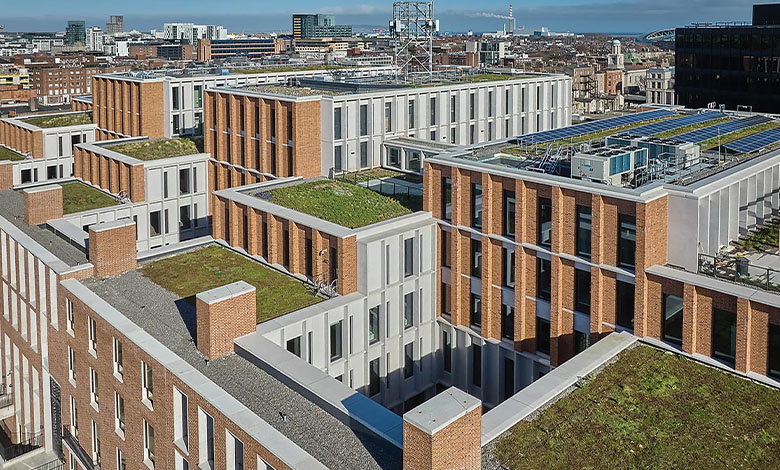
Cities are responsible for up to 70 per cent of carbon emissions globally. As Ireland’s urban areas have grown in lockstep with our population in recent decades, this puts cities at the frontline of efforts to deliver on national climate targets.
Against this background, electrification is emerging as the cornerstone of sustainable urban living. By replacing fossil fuels with clean electricity from renewable sources, cities can not only reduce their carbon footprint; they can minimise harmful pollutants in the air, becoming healthier, more pleasant places to live.
Energy providers have a big role to play in making the all-electric city a reality, and ESB is at the forefront of this transformation in Ireland, supporting electrification across sectors while empowering customers and communities to tap into the benefits it offers.
Smart buildings: Rethinking the urban fabric
According to research from the C40 global cities’ network, buildings are responsible for an average of 60 per cent of the emissions in urban areas, with heating and cooling the main culprits. Tomorrow’s buildings will not just consume energy however, they will generate, store, and share it – a change being driven by electrification in tandem with improved energy efficiency.
For new-build houses, airtight insulation, and electrified heating in the form of a heat pump generally come as standard. Cities, however, are a patchwork of dwellings from all eras and in varying state of repairs. Transforming these homes into low-carbon, energy-efficient buildings usually requires deep retrofits. One-stop-shops such as Electric Ireland Superhomes, a joint venture of ESB and Tipperary Energy Agency, are making this possible by upgrading properties with heat pumps, advanced insulation, and even rooftop solar – allowing them to generate their own electricity.
The rise of microgeneration in cities is not limited to residential properties. There is huge untapped potential for solar PV to be integrated into rooftops and facades of office buildings or commercial enterprises. ESB’s Smart Energy Services (SES) works with businesses to unlock these opportunities: for example, delivering a rooftop PV installation for the Pavilions Shopping Centre in the Dublin suburb of Swords, which has reduced the centre’s carbon footprint while lowering energy costs.
As for commercial property, ESB’s Fitzwilliam 27 office in Dublin stands as an example of what is possible when urban buildings are designed for ‘sustainability-first’. Ireland’s first large fossil fuel-free office building, it operates at near-zero energy consumption: it has no fossil-fuel heating, utilising geothermal energy, heat pumps and solar PV.
Transport: The electric revolution rolls on
Electrification is also transforming how Irish city-dwellers get from A to B. Electric vehicles (EVs) are becoming a natural choice for urban driving where short hops are the norm. In cities, however, not everyone has access to a private driveway to install a charger, making the public EV charging infrastructure crucial. ESB’s ecars network has been steadily expanding to meet this need, now offering over 1,600 charging points across the island of Ireland. ESB is also helping urban public transport go electric: ESB SES designed and built Ireland’s first fully electric bus depot in Athlone, where up to 18 EV buses can charge at once, supported by a dynamic load management system to optimise on-site energy use.
Rethinking transport for tomorrow’s cities also means going beyond simply replacing petrol cars with EVs, and embracing new solutions like shared mobility and vehicle-to-grid. To this end, ESB’s innovation team is working with partners in industry and research to trial a new kind of e-mobility hub or ‘eHub’ in urban centres around the country. These one-stop locations with charging facilities give people access to shared EVs, e-bikes or e-cargo bikes, which can be rented directly from a smartphone, and have the potential to provide support to the grid.
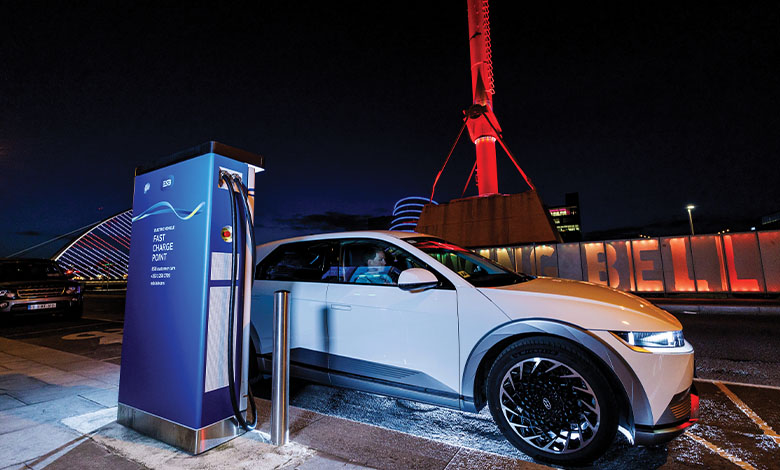
The digital backbone of the smart city
Behind the scenes, the electrification of our cities requires an energy grid that is robust, resilient and increasingly digital and data-driven. ESB Networks is working to ensure a net-zero ready electricity distribution network by 2040, which is foundational for a net-zero Ireland by 2050. Looking ahead to the upcoming Price Review 6 (PR6) period (2026-2030), it is proposing to invest over €13 billion in the network infrastructure that serves cities, towns and rural communities across Ireland.
In the first instance, this investment is needed to help expand, upgrade, and future-proof the physical network infrastructure required to support the huge increase in demand as sectors like heat and transport electrify. At the same time, the all-electric city will call for a new kind of flexibility on the network to be accommodated.
In a decarbonised system powered by variable renewables and where energy generation is increasingly decentralised, a range of smart solutions will be deployed by network operators to forecast demand, manage energy use in real time and empower customers to become active participants in the electricity market. ESB Networks has been developing and trialling such solutions through initiatives like the National Network, Local Connections programme, and plans to accelerate investment and innovation in advanced digital infrastructure in PR6.
Collaboration holds the key
To fully unlock the potential of electrification to decarbonise our cities, collaboration between energy providers, public bodies, and local businesses and residents will be key. As an industry partner in UCD’s Next-Generation Energy Systems (NexSys) research programme, ESB works with researchers and peer organisations to explore pathways to a net-zero energy system, with cities as a key focus. Communication with customers will also be vital, listening closely to their needs and giving them the tools to embrace an all-electric lifestyle; whether heating their homes, getting around their city, or taking control of their electricity use.
Far from a vision from the distant future, the electrified city is already being built today – one retrofit, one EV charger, one smart meter at a time. And it is not only urban dwellers who will reap the benefits, as the changes underway bring Ireland as a whole closer to our net-zero goals.
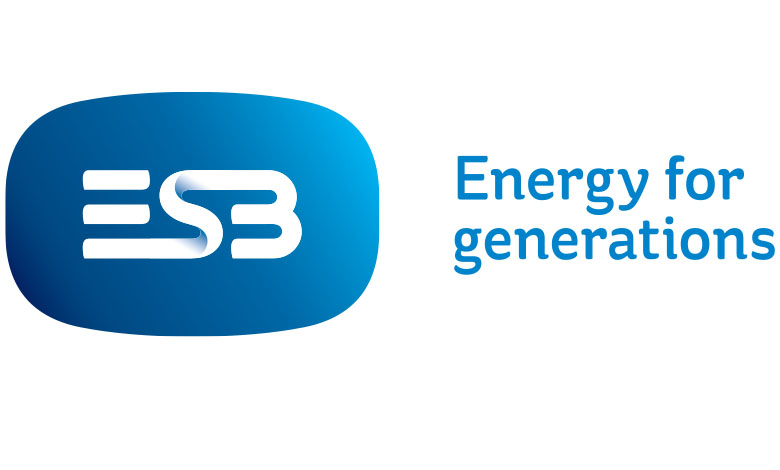
ESB
27 Fitzwilliam Street Lower
Dublin 2
D02 KT92
T: +353 1 676 5831
W: www.esb.ie

